Death metal Live Radio Stations
Radio Stations
- 0nlineradio METAL

- Avanzada MetallicaAvanzada Metallica
- Bear Metal RadioBear Metal Radio
- ChroniX Radio Aggression
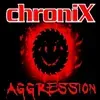
- ChroniX Radio Metalcore
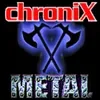
- Death.FM

- DJ 666 Geordieblackcore

- DrGnu - Death Metal

- DrGnu - Prog Rock Classics

- FUZZ RadijasFUZZ Radijas
- Hard Rock Hell

- Laut.FM Bang! Radio
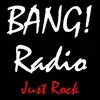
- MotorbreathMotorbreath
- RADIO BOB! BOBs Death Metal

- Radio MetalRadio Metal
- Radio MetalRadio Metal
- Rock Antenne Heavy Metal

- SomaFM Metal Detector (128k AAC)
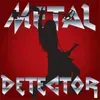
- Thrashking Radio
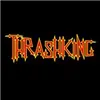
- WSOU 89.5FM Pirate Radio

Choose a Genre
Death Metal: The Aggressive Heart of Extreme Music
Death metal, a subgenre of heavy metal, is not for the faint of heart. With its intense sound, complex rhythms, and guttural, growling vocals, death metal pushes the limits of what music can express. Emerging in the late 1980s, this brutal genre quickly gained a dedicated following, captivating listeners who craved a musical experience that was as emotionally intense as it was sonically complex. Today, death metal remains a dominant force in extreme music, resonating deeply with fans who thrive on its raw power and intensity.
The Distinctive Sound of Death Metal
Characterized by fast tempos, intricate guitar riffs, and technical drumming, death metal is designed to be harsh and abrasive. The music's chaotic nature is meant to convey a sense of aggression and raw energy, using complexity and speed to create an exhilarating listening experience. Iconic bands such as Cannibal Corpse, Morbid Angel, and Deicide played a pivotal role in shaping the genre's identity, laying the groundwork for the death metal scene that thrives today. These pioneers, with their thunderous riffs and sinister lyrics, paved the way for countless other acts, solidifying death metal’s place in the heavy metal pantheon.
Lyrically, death metal often explores dark, macabre themes—violence, death, and existential despair are common subjects. The genre’s unapologetic approach to these themes adds to its intensity, creating an atmosphere that is both disturbing and cathartic. This stark emotional expression resonates with listeners who are looking for a more visceral connection to music.
Death Metal on the Airwaves
For die-hard fans of death metal, radio stations dedicated to the genre are crucial spaces for discovery and connection. These stations curate playlists filled with both classic tracks from death metal legends and fresh offerings from contemporary artists. By showcasing the diversity and complexity of the genre, death metal radio stations introduce listeners to the full spectrum of this extreme subgenre—from its raw, primitive beginnings to its more experimental modern iterations.
Many death metal radio stations take the experience a step further by offering live performances, giving listeners a taste of the energy and chaos of a live concert. These broadcasts simulate the visceral thrill of being at a death metal show, amplifying the genre’s unrelenting intensity in a way that recorded music alone cannot.
Exploring the Culture of Death Metal
Beyond just playing music, many death metal radio stations provide programming that delves into the culture and history of the genre. This includes interviews with legendary musicians, album reviews, and in-depth discussions about the evolution of death metal. By offering commentary and insights, these stations not only entertain their audiences but also educate them about the technical prowess and artistic depth behind the genre’s aggressive sound. This creates a deeper understanding of death metal’s role within the broader landscape of heavy music.
Death metal is a genre that demands attention, not just because of its audacity but also because of its complexity. The sheer technical skill required to play this type of music is often overlooked by those unfamiliar with its intricacies. Radio stations dedicated to the genre help foster an appreciation for the genre's musicianship, allowing fans to connect with it on a deeper level.
The Emotional Release of Death Metal
For many listeners, death metal serves as an emotional release. The ferocity of the music makes it ideal for intense activities like working out, focused concentration, or as an outlet for pent-up energy and aggression. The genre's intense sound is a cathartic experience, offering a way to confront inner turmoil or simply channel negative emotions into something empowering. This is why death metal has become more than just a music genre for its fans; it’s a powerful tool for emotional expression and release.
However, it’s important to note that death metal is not for everyone. Its abrasive vocals and chaotic instrumentation can be overwhelming for some listeners. The genre’s extreme nature often makes it a polarizing experience—while it speaks deeply to its fans, it can be inaccessible to others.
Death Metal's Niche in the Radio Landscape
Despite its niche appeal, death metal has carved out a lasting presence within the radio landscape. The genre's fanbase is deeply loyal, and death metal radio stations continue to serve as an essential platform for those who thrive on its raw energy and technical excellence. These stations keep the flame of death metal alive, ensuring that this brutal genre remains relevant and ever-evolving.
Death metal radio stations provide a vital service to extreme music fans by offering high-energy playlists, live performances, and engaging programming that fosters a deeper connection to the music. By giving listeners an outlet for their passion and a platform to discover new music, these stations ensure that death metal remains a key player in the evolution of heavy music.
In the world of extreme music, death metal stands as a brutal and brilliant testament to the power of music to provoke, challenge, and inspire. Whether through its aggressive sound, its technical complexity, or its raw emotional expression, death metal continues to leave an indelible mark on the heavy metal landscape.
Death metal, a subgenre of heavy metal, is not for the faint of heart. With its intense sound, complex rhythms, and guttural, growling vocals, death metal pushes the limits of what music can express. Emerging in the late 1980s, this brutal genre quickly gained a dedicated following, captivating listeners who craved a musical experience that was as emotionally intense as it was sonically complex. Today, death metal remains a dominant force in extreme music, resonating deeply with fans who thrive on its raw power and intensity.
The Distinctive Sound of Death Metal
Characterized by fast tempos, intricate guitar riffs, and technical drumming, death metal is designed to be harsh and abrasive. The music's chaotic nature is meant to convey a sense of aggression and raw energy, using complexity and speed to create an exhilarating listening experience. Iconic bands such as Cannibal Corpse, Morbid Angel, and Deicide played a pivotal role in shaping the genre's identity, laying the groundwork for the death metal scene that thrives today. These pioneers, with their thunderous riffs and sinister lyrics, paved the way for countless other acts, solidifying death metal’s place in the heavy metal pantheon.
Lyrically, death metal often explores dark, macabre themes—violence, death, and existential despair are common subjects. The genre’s unapologetic approach to these themes adds to its intensity, creating an atmosphere that is both disturbing and cathartic. This stark emotional expression resonates with listeners who are looking for a more visceral connection to music.
Death Metal on the Airwaves
For die-hard fans of death metal, radio stations dedicated to the genre are crucial spaces for discovery and connection. These stations curate playlists filled with both classic tracks from death metal legends and fresh offerings from contemporary artists. By showcasing the diversity and complexity of the genre, death metal radio stations introduce listeners to the full spectrum of this extreme subgenre—from its raw, primitive beginnings to its more experimental modern iterations.
Many death metal radio stations take the experience a step further by offering live performances, giving listeners a taste of the energy and chaos of a live concert. These broadcasts simulate the visceral thrill of being at a death metal show, amplifying the genre’s unrelenting intensity in a way that recorded music alone cannot.
Exploring the Culture of Death Metal
Beyond just playing music, many death metal radio stations provide programming that delves into the culture and history of the genre. This includes interviews with legendary musicians, album reviews, and in-depth discussions about the evolution of death metal. By offering commentary and insights, these stations not only entertain their audiences but also educate them about the technical prowess and artistic depth behind the genre’s aggressive sound. This creates a deeper understanding of death metal’s role within the broader landscape of heavy music.
Death metal is a genre that demands attention, not just because of its audacity but also because of its complexity. The sheer technical skill required to play this type of music is often overlooked by those unfamiliar with its intricacies. Radio stations dedicated to the genre help foster an appreciation for the genre's musicianship, allowing fans to connect with it on a deeper level.
The Emotional Release of Death Metal
For many listeners, death metal serves as an emotional release. The ferocity of the music makes it ideal for intense activities like working out, focused concentration, or as an outlet for pent-up energy and aggression. The genre's intense sound is a cathartic experience, offering a way to confront inner turmoil or simply channel negative emotions into something empowering. This is why death metal has become more than just a music genre for its fans; it’s a powerful tool for emotional expression and release.
However, it’s important to note that death metal is not for everyone. Its abrasive vocals and chaotic instrumentation can be overwhelming for some listeners. The genre’s extreme nature often makes it a polarizing experience—while it speaks deeply to its fans, it can be inaccessible to others.
Death Metal's Niche in the Radio Landscape
Despite its niche appeal, death metal has carved out a lasting presence within the radio landscape. The genre's fanbase is deeply loyal, and death metal radio stations continue to serve as an essential platform for those who thrive on its raw energy and technical excellence. These stations keep the flame of death metal alive, ensuring that this brutal genre remains relevant and ever-evolving.
Death metal radio stations provide a vital service to extreme music fans by offering high-energy playlists, live performances, and engaging programming that fosters a deeper connection to the music. By giving listeners an outlet for their passion and a platform to discover new music, these stations ensure that death metal remains a key player in the evolution of heavy music.
In the world of extreme music, death metal stands as a brutal and brilliant testament to the power of music to provoke, challenge, and inspire. Whether through its aggressive sound, its technical complexity, or its raw emotional expression, death metal continues to leave an indelible mark on the heavy metal landscape.